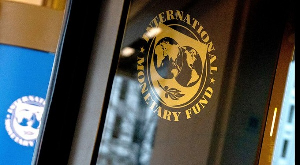General News of Thursday, 7 August 2008
Source: GNA
GT employees accuse competitors
...of "machinations" to kill Vodafone deal
Accra, Aug. 7, GNA - A group calling itself "The Concerned Staff of Ghana Telecom (GT)", on Thursday accused competitors of the company of engaging in behind the scene machinations to derail the GT-Vodafone deal.
In a statement emailed to the Ghana News Agency, the group said: "We the concerned staff of GT cannot rule out the behind the scenes machinations by competitors in the GT-Vodafone saga which they will be happy to see derailed because they know the entry of Vodafone into the Ghanaian market is a big threat to their businesses."
The group registered its support for the deal and catalogued 14 reasons why the deal was the most suitable for GT. It said GT cannot survive the impending heated competition if the Vodafone deal failed
"We believe Vodafone has the international clout in the telecom industry worldwide which GT can leverage on when it comes to international transactions and compete effectively with MTN, Zain, Glo, Tigo and Kasapa which are all multinationals."
The government has signed a deal to offload 70 percent of its stake in the GT to Vodafone for 900 million dollars. The announcement of the deal, signed on July 3 this year, generated heated debate between critics and supporters of the deal. Among the critics are journalists, politicians, economists, the clergy, civil society organizations and unionists.
Even before the scheduled Parliamentary debate of the Sale Partnership Agreement (SPA) on August 12, a group from the Convention People's Party (CPP) has initiated moves to take the government to court to stop the sale.
Management and senior staff of GT have registered their full support for the sale.
The Concerned Staff also expressed fears that should the GT-Vodafone deal failed, GT would collapse under the pressure of existing and in coming competitions.
"All our competitors are multinationals and the investments they are making in the areas of fibre-optics, 3G services and other things could have perilous consequences on GT's operations if we do not respond by also investing in these technologies."
The group argued that raising money from the stock exchange would take too much time that GT would lose out on the forecast six million subscribers that all the six players were competing for within the next few years. "GT does not have the necessary funds to lay an efficient fibre-optics cable, much more acquire a 3G license from the National Communications Authority (NCA) like our competitors have," it said. The group noted that already, Onetouch, the mobile telephony wing of GT, was losing some of its lucrative corporate customers to competition because GT did not belong to a multinational group. "Onetouch lost its Nestle corporate account to MTN about three months ago because MTN gave Nestle a package Onetouch could not match," it said.
MTN customers in Ghana for instance could call MTN customers in Nigeria for instance and pay local charge of GH¢0.146 per minute whilst Onetouch customer paid GH¢0.220 for a similar call.
The group said GT had also been experiencing decline in revenues from its International Roaming Services because MTN and Tigo, with their respective international affiliates, had negotiated traffic steering deals with major mobile operators all over the world where all roaming traffic or calls destined for Ghana were technically directed onto MTN and Tigo network.
It noted that Zain, one of new multinational entrants, had scheduled to launch its "Africa One" service by November 2008. This would enable Zain customers from Ghana to use the service in other countries where Zain had operations and pay local charges instead of paying roaming rates.
Glo had a similar product, the group added. "GT is at risk of losing more corporate customers," it said. It also blamed the third positions of GT/Onetouch in the mobile phone service market on low quality of service as recorded in the last NCA ratings, saying that GT needed new equipment and spare parts to fix its network quality problems. Currently, some of GT's billing and switching systems are inefficient and they lead to revenue leakages. "GT needs to replace and overhaul these systems with state of the art equipment, which we believe Vodafone has the capacity to provide in order to maximize revenue generation." The group complained that the 4,200 staff of GT risked losing their jobs and being made redundant if the Vodafone deal failed due to the current precarious financial situation of the company.












